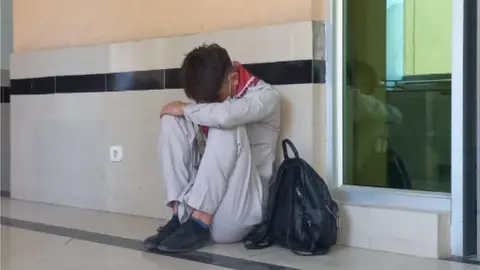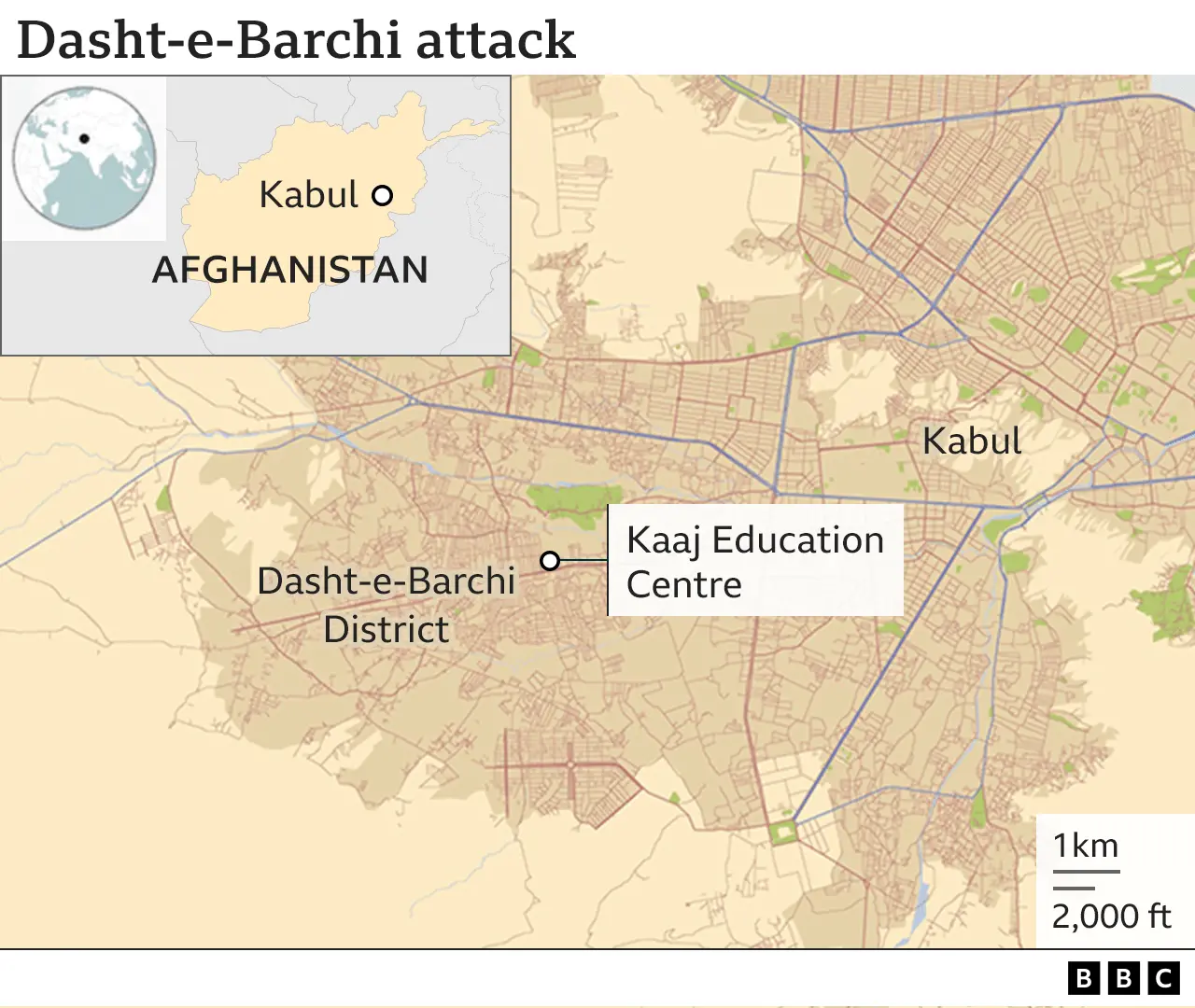Kabul blast kills teenagers sitting practice exam
A suicide attack at a tuition centre in the Afghan capital Kabul has killed at least 35 people, most of them female students, the United Nations says.
More than 80 others were wounded in Friday's attack at the Kaaj education centre in the Dasht-e-Barchi area.
Students had been sitting a practice university exam when the bomber struck. No group has yet claimed the attack.
Many of those in the area are minority Hazaras, who have often been targeted by Islamic State (IS) militants.
Dozens of Hazara women defied a ban on rallies from the country's Taliban officials to protest against the violence on Saturday, the AFP news agency reported.
Around 50 women chanted while marching in the street, calling for an end to "Hazara genocide".
In the aftermath of Friday's attack, footage on local TV and shared on social media appeared to show scenes from a nearby hospital, where rows of covered bodies were laid out on the floor.
Other media reportedly from the site of the private college showed rubble and upturned tables in the damaged classrooms.
"We didn't find her here," a woman who was looking for her sister at one of the hospitals told AFP. "She was 19 years old."
The attacker is reported to have shot at the guards outside the centre, entered a classroom and detonated a bomb.
Eyewitnesses told the BBC that most of the victims were girls - they were seated in the front row, near the blast. A student who was wounded told AFP that there were around 600 people in the room when the attack happened.

The Kaaj tuition centre is a private college which teaches both male and female students. Most girls' schools in the country have been closed since the Taliban returned to power in August last year, but some private schools are open.
Hazaras, most of whom are Shia Muslims, are Afghanistan's third largest ethnic group. They have long faced persecution from the regional affiliate of Islamic State (ISKP) and the Taliban, which both adhere to Sunni Islam.
The UN's death toll is higher than that so far acknowledged by the country's Taliban officials.
On Friday, an interior ministry spokesman condemned the attack and said security teams were at the site.
Abdul Nafy Takor said attacking civilian targets "proves the enemy's inhuman cruelty and lack of moral standards".
The attack was also strongly condemned by the US and the US.
"Targeting a room full of students taking exams is shameful; all students should be able to pursue an education in peace and without fear," said Karen Decker, charge d'affaires at the US mission to Afghanistan, in a tweet.

The security situation in Afghanistan, which had improved after the end of fighting following the Taliban takeover, has been deteriorating in recent months, with a number of attacks on civilians but also Taliban supporters. Some have been claimed by IS, which is a bitter rival of the Taliban.
Schools and hospitals have been targeted in the Dasht-e-Barchi area in a series of attacks, most of which are thought to have been the work of IS.
Last year - before the Taliban returned to power - a bomb attack on a girls school in Dasht-e-Barchi killed at least 85 people, mainly students, and wounded hundreds more.
